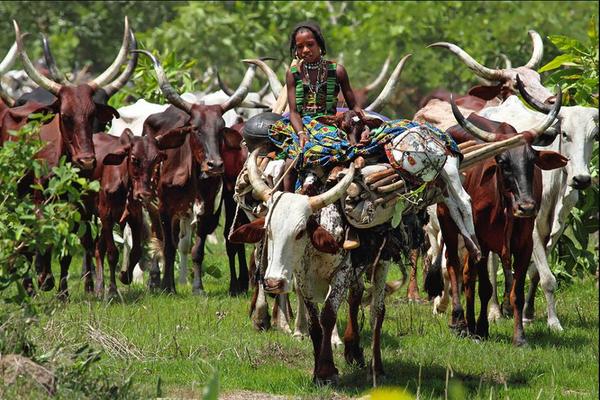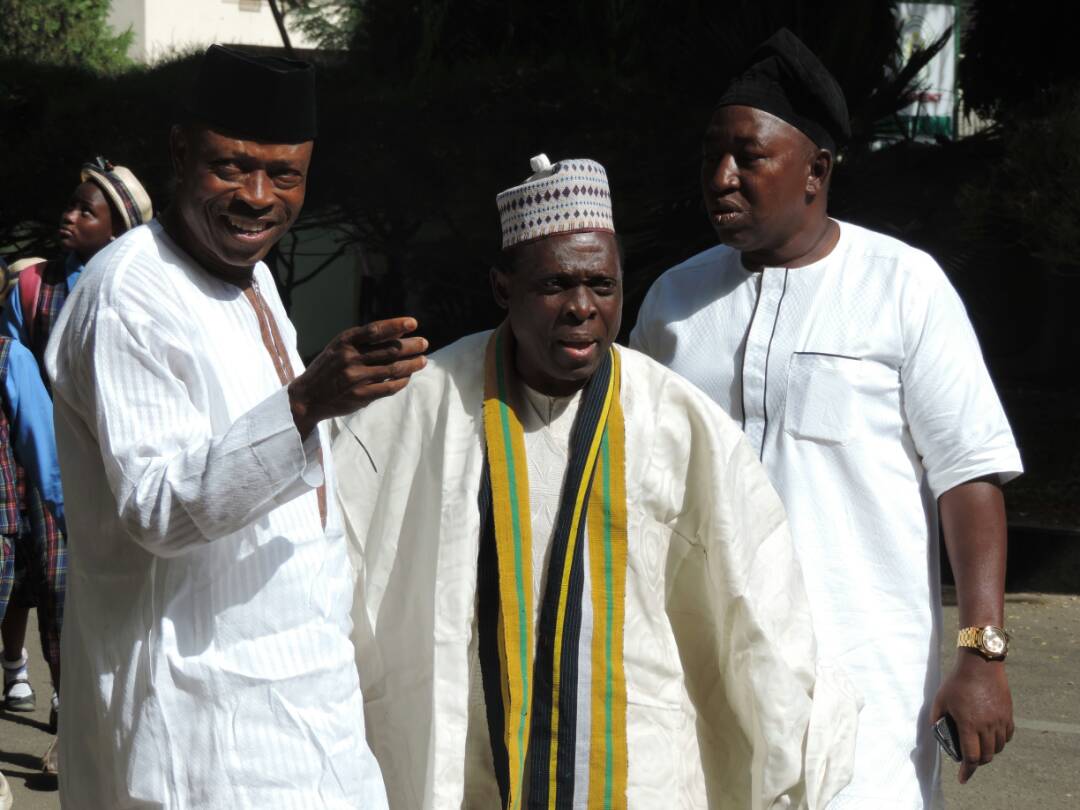
By Kogi Rebel (Promise Emmanuel)
Governor Yahaya Bello is in the news again. For some lips, he has made another “infantile” decision. To some hearts, he has opened Kogi State to the murderous carnage of the Fulani herdsmen that have left hundreds of deaths in their wake in the state of Benue, Plateau, Adamawa and Taraba states. We are still dealing with the psychological fear driven into the soul of Nigeria by Nigeria.
In socially volatile country like Nigeria, such fears are palpable. At least, politicians of business interests benefit from crisis. State crisis. National crisis. Social crisis. I can understand why the people of the Confluence are skeptical. One thing I need to explain to the Confluence fear is also that; amidst the controversies trailing the young Govenor, he has a stomach for big, surgery-inclined, painful but yielding decision-making-competence.
How many of us who’s tongues, thoughts and keypads understand ranching or cattle colony before reacting?
How many have also studied the consequences of this decision without political coloration put into it?
Let us jettison political-marriage to interpretations of issues for a while.
Come with me,
Since the creation of Nigeria, vaginaling into the times before urbanisation, Fulani cattle rearers were known to other Nigerians by the ajala-movement of their cattle amongst cities, amongst villages, between states, within Nigeria.
The Nigerian Government dating back to 1965 had outlined grazing routes. These routes were largely forested areas with no human life. These Fulanis are largely people of the wild. They cared for the lives of their cattle than the dangers of scathering wild forests of deadly snakes, wild animals, independent growing grasses and whatnot. Their social life were nomad. With temporary settlements in towns of favourable pasture for their cattle, they organised themselves into tents. Their pregnant wives give birth in unreliable places. Mostly, vulnerable to wild infections, tropical diseases while their children are defactored from receiving medical immunisation. They have remained displaced in Nigeria, maintaining their culture and economic muscle of cattle rearing which produces beef and milk for the Nigerian protein stomach.
Urbanisation took swift. The Fulanis remained largely unplanned for. They weren’t incorporated into the modern life by the Government. The ancient grazing routes had been taken over by city arrangement of new houses for settlement and farming ranches for subsistence.
The Federal disconnect or human planning and integration laid a ground for the fertility of clashes in interests of the Fulanis to roam their cattle along grazing routes without interference with a new urban city of people and farms of contemporary growth.
This above has been the problem. The deadly part of this problem is that the owners of some of these cattle have capitalised on this loophole, arming the herders with weapons to fight for territorial integrity. However, the physical density of this war is subject to the response from the center.
In the case of Kogi state, Governor Yahaya Bello has made a controversial decision, yet circumspect from the security and economic angle.
If we are to be careful, rather than wail, we would need to find solutions. Quick ones. It wouldn’t matter the political narrative it is given on social or traditional media. People would continue to die if state Governments do nothing about and for their own people.
What is a Ranching?
Ranching is an individually sponsored settlement of grazing reserve on huge hectares of land, meant for a specific purpose. People can ranch for milk production. Others can ranch for beef production. It would mean that a large area of land or lands are purchased for caring for cattle.
What is Cattle Colony?
A cattle colony is a segregated facility that houses ranches. Here, many hectares of lands are bought by the Government, whereby the chosen colony would require government buying the pieces of land in that area from the owners, paying them compensation and creating use for the land. The Land Use Act empowers the government for taking any land they want, hence, compensation would be paid. That is how Governments get some lands to build roads if it belongs to others.
In the case of a Colony. It restricts ALL herders to a particular location. They’ll be no scattered movement. They’ll be no fear about who’s going to anybody’s farm. If a herder is caught outside the proposed colony which is to be monitored by Government and private investors ranching in the colony, then the case of foreigners invading farm lands would be clear.
The Security Angle for Bello
If Kogi State is to maintain her security state, being the most vulnerable state in Nigeria because of her border relationship with about ten states in Nigeria, proactive security measures should be handy. If the Fulani herdsmen are pushed out of neighbouring states which Kogi borders, it is no rocket science that they’ll pass through Kogi before retreating to anywhere they intend to settle. We are landlocked and social locked. What then can we do?
1. Social inclusion:
kogi state has long been living with Fulanis. The state was carved out of Kwara State, which is a social model of cohabitation between the Yorubas and Fulanis. The current Senate President, Bukola Saraki is reputed to be a Fulani. His family controls Kwara politics. A part of Kwara was ceded in 1991, adjoined with the old Benue state which the Igalas came from. The Fulani history has always been there.
In some parts of villages of Kogi West senatorial districts, Fulanis have settled with a culture of intermarriages.
In many parts of Igala land, the local traditional rulers have made good hospitality for various Fulani communities who also contribute to the market economy. On popular Ajaojuta road, the Fulanis display Garden eggs for sale. There are meat markets around the state.
In reiteration of the Fulani leaders to the traditional council as an established Policy by Governor Bello, a social inclusion morality is being set up, whereby the collective problem of the communities would also be a responsibility of the Fulanis residing in those communities.
2. Biometric Capture of Fulanis:
This inclusion, aligning with that of the Cattle Colony would pave way for appropriate biometric information of all Fulanis living in the state. It would detail who is doing what, why and when. It would eliminate the plausible deniability enjoyed by the murderers who are never unknown.
Economic Angle for Bello
1.As pioneers of the Cattle Colony as part of the 16 states in Nigeria, out of tye 36 that have volunteered lands for the colony project, funded by the Federal Government, Kogi State would be benefitting. The compensation to be paid by those whose lands would be affected carries economic implications.
The opportunities a Cattle Colony provides for individuals who wish to enter into ranching animals is enormous. How many Kogi would like to buy cows for rearing? Opportunities.
2. Meat and Milk Market:
Milk factories, chain abattoiral stores, hides and skin markets are all subsets of this gain. The proper management of cattle and her end products in other parts of the world is due to ranching and settlement of Colonies. The chain effects of this on Kogi economy is gigantic. As a middle-centered-state, inward and outward mobilisation of people for exports of some of these commodities would be on the rise. If the economy of the state is to pick up, the argument for the dredging of the Niger should keep at north.
In conclusion, I would suggest that rather than tantrums and ethnic sentiments, Kogites should come up with suggestions on better alternatives. Should the Govenor fold his arms and watch things happening around escalate into Kogi?
Even if you think his decision isn’t the best, come up with alternative suggestions and how it should be done. Save name calling, it is a hallmark of dumb people.
In integrity, the Yahaya Bello’s Government maybe proposing a town hall meeting in this regard to listen to her people. I should follow it keenly and bring you information.
…Kogi is rising


Thank you Kogi rebel for weighing into the conversation around cattle colony. I think your submission needs deeper rethinking. It is too quickly celebratory of the promised advantages of cattle colony in Kogi state.Have you investigated; What is at the root of the persistence of the historical suspicion of the Hausa-Fulani in Igala land? Between 2012-2017 more than 80 persons have been killed by gun totting Fulani, ask those who live in Bagana, Abejukolo, Odolu. In what way is Kogi the confluence state land locked? with rivers Niger and Benue, omala, mabolo, and all the major rivers scattered around the state and especially Igala land? Your piece celebrated Sarakis as of Fulani dynasty ruling Kwara state, your article wont be celebrating if you do a little historical search of the Hausa-Fulani dubious conquest of Illorin in 1824. The Hausa-Fulani ideological hope of implementing the Dan Fodio’s imperial vision of Nigeria-wide conquest is vey much alive. Do not be naive about it. If you have researched much deeply you would have realised that many Igala sons and daughters are into cattle rearing business long before now and herdsmen are hired to tend. Idah is a case study. You wrote about gigantic economic gains, let me remind you: Ajaokuta steel co., has achieved almost nothing for Igala land, Idah sanitary ware is dead and buried, Okaba coal mine remains a perpetually deferred hope. Obajana cement company was once a light in the tunnel but what has it benefitted the state? On the spur of the moment utterance of Bello is a political pretext that is more self-serving, than it is geared towards the economic benefit of the state. While some of your indicators of the promised advantage are worth noting, there are at best superficial, idealistic and devoid of historical antecedents and political implications of such community altering proposal. My suggestion is to have bottom up approach to the issues, the community accepting the possibility of amicable partnership and co-existence. It should be a move towards a more robust mechanised cattle ranching for all, not just for the Fulani alone, noting wider implication for health, river pollution, tenancy and legitimate concerns of farmers. Bello has not live up to many of the APC campaign promises for the state. Why should we trust him now?